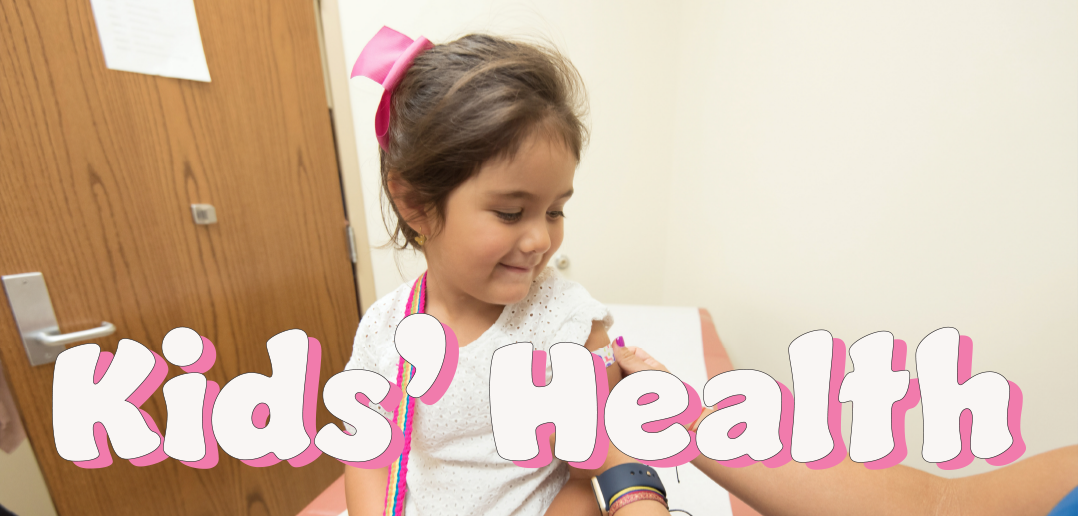Becoming a parent is one of the biggest decisions one can make in their lifetime. Making sure the parents and baby are healthy throughout the pregnancy and at the time of birth is extremely important, but the years of doctors and dentist appointments are just beginning. Getting your child started with healthy habits from the start can set them up for a lifetime of success.
Early dental care is essential in creating and maintaining ideal oral health in children. Equally important is the continuity of that care, which is why parents seek a dental office “home” where their children can receive routine evaluations and cleanings and any other treatments that keep young smiles healthy. Your baby’s first tooth should appear when they are six to eight months old. This is the perfect time to start using a child’s soft-bristled toothbrush to gently brush their incoming teeth and the perfect time to schedule them for their first dental visit.

Dr. Frannie Rensch
Pediatric Dental Specialists
“Start your child on a positive path with early dental care. Bringing your child to the dentist at an early age will help them become familiar with the dentist and routine care,” said Dr. Frannie Rensch from Pediatric Dental Specialists. “In most cases, a dental evaluation every six months can catch small problems early.”
There are many habits that can prevent or reduce the risk of cavities as they get older. You can start at birth by cleaning your baby’s gums after feeding by using a moistened washcloth to gently massage their gum tissues.
“All children are welcome here! Our team is trained to treat all children, regardless of their health care needs,” Dr. Frannie shared. “At Pediatric Dental Specialists of Greater Nebraska, our team works closely with parents and medical doctors to create a treatment plan customized for each child’s unique needs.”
Arriving early to your appointment allows your child time to acclimate to their surroundings and enjoy the games and other fun activities we have around the office. PDS is committed to ridding the world of the idea that visiting the dentist is something to be scared of. Letting your child enjoy the office before and even after their appointment is an important part of that effect. After every visit, children will be rewarding with a prize and a sticker.
Children grow and change at an almost alarming rate—so fast that it often seems they’re hitting a new milestone every time you turn around. As your child grows up, their mouth changes just as much as they do. Pediatric dentists have their work cut out for them, helping you to protect your child’s oral health while keeping an eye on the development of their teeth and jaws; they have to know exactly what to look for as your child grows and changes. As a parent, however, it can be hard to understand exactly what your child’s dentist is looking for at each dental evaluation. Here’s a breakdown of what pediatric dentists look for during each stage of your child’s dental development.
Six Months to One Year
Your child should visit the dentist as soon as their first baby tooth erupts—which usually happens between the ages of six months and a year, or by age one, whichever comes first. At this age, the pediatric dentist’s biggest concern is to ensure that your child’s baby teeth are erupting normally and that they remain healthy. Baby teeth have a thinner layer of protective enamel and are more vulnerable to decay, so the dentist will check carefully for signs of cavities, especially on the back of the teeth, where baby bottle decay is most likely to occur.
The dentist will also look for signs of enamel hypoplasia, which is when the protective layer of enamel on your child’s teeth doesn’t form correctly. It has a number of causes, including premature birth, vitamin deficiencies, and Celiac disease. They will also look for sores in your child’s mouth, which can be the result of ulcers, cold sores, or a sign of an infection like oral thrush. Additionally, pediatric dentists will determine if your child is getting enough fluoride, which plays an essential role in fighting decay and developing strong, healthy teeth, and may suggest supplements.
One Year to Three Years
As your child’s baby teeth erupt, their pediatric dentist will continue to pay close attention to the development and health of their baby teeth. They will evaluate the impact of your child’s habits, like sucking on a thumb or pacifier, keep a sharp eye out for decay or sores in your child’s mouth, and take steps to quickly resolve any issues that may appear. The dentist may also recommend that your child gets fluoride treatments, which can provide added protection against decay for children between the ages of six months and 16-years-old.
Three Years to Seven Years
All of your child’s baby teeth should be in by the time they reach three years old. If your child loses a baby tooth too early or never developed a tooth in one area of their mouth, their dentist might suggest placing a space maintainer in their mouth. Space maintainers keep baby teeth from shifting around and help their adult teeth erupt in the correct place. Children lose their first baby tooth around the age of five or six, so this is also the age that your child will likely get their first dental x-ray. This helps the dentist make sure that your child’s adult teeth are developing properly in their jaw and reveals areas of decay that may not be visible to the naked eye.
Seven Years to Ten Years
When you were a kid, you likely didn’t visit an orthodontist until you were about 13 years old, but nowadays the ideal age for children to come in for an orthodontic consultation is seven. By this age, your child has enough permanent teeth to allow pediatric dentists to predict, and pre-emptively treat, dental issues such as overcrowding and misaligned bites. Pediatric Dental Specialists offers orthodontic examinations on location, making it easier than ever to get a consultation; instead of hiking across town to see a specialist, you’ll be able to stay with the dentist and dental hygienists you and your child already know and love! Plus, early orthodontic treatments can lessen or eliminate the need for treatments like tooth extractions, and will cut down on the amount of time your child needs to wear braces later.
Treating these issues early is so effective because dentists take advantage of the fact that your child’s jaw is still growing; when necessary, they can use devices like palate expanders to create more room for adult teeth in a crowded mouth. Not all children need early orthodontic treatments, but pediatric dentists still learn valuable information by examining your child’s bite. Additionally, their dentist will continue to watch out for signs of tooth decay or gum disease and will examine x-rays to ensure that their jaws and teeth are developing normally.
10 Years to 14 Years
Every child’s teeth develop at a slightly different rate, but most children are ready for traditional orthodontic treatment between the ages of 10 and 14—when they have all or most of their adult teeth. If your child needs orthodontic treatment, you can work together to choose from treatment options like traditional braces or clear aligners. A straight, even smile will increase your teen’s confidence and make their teeth easier to clean, decreasing their risk of tooth decay or gum disease.
14 Years to 18 Years
Teens face increased risks of tooth decay and gum disease for many reasons, including a lack of commitment to dental hygiene, fluctuating hormones, and habits like smoking. Additionally, as sports become more competitive, they’re more likely to suffer an injury to their teeth. Their dentist will examine their mouth carefully for signs of decay, gum disease, and cracked or chipped teeth. They’ll also use x-rays to periodically check on the development of your child’s wisdom teeth, which often cause pain as they begin to erupt and usually need to be removed between the ages of 17 and 25. Dentists will make sure your teen’s wisdom teeth aren’t impacted, damaging other molars, or causing any pain, and they’ll determine when your child’s wisdom teeth should be removed.
While all the changes your child’s mouth goes through may seem overwhelming, you can rest assured that their pediatric dentist is available to provide advice or treatment whenever you need them. They work with you to help your child maintain healthy teeth, gain a straight smile, and forge healthy habits from a young age—all of which they’ll benefit from for the rest of their lives.
Partnering with the right professionals throughout the journey of raising a child and the different stages you’ll go through will ensure you are doing what’s necessary to keep him/her healthy and happy. We encourage you to be proactive and diligent, reach out and connect, explore the possibilities, find what works and stay the course!

